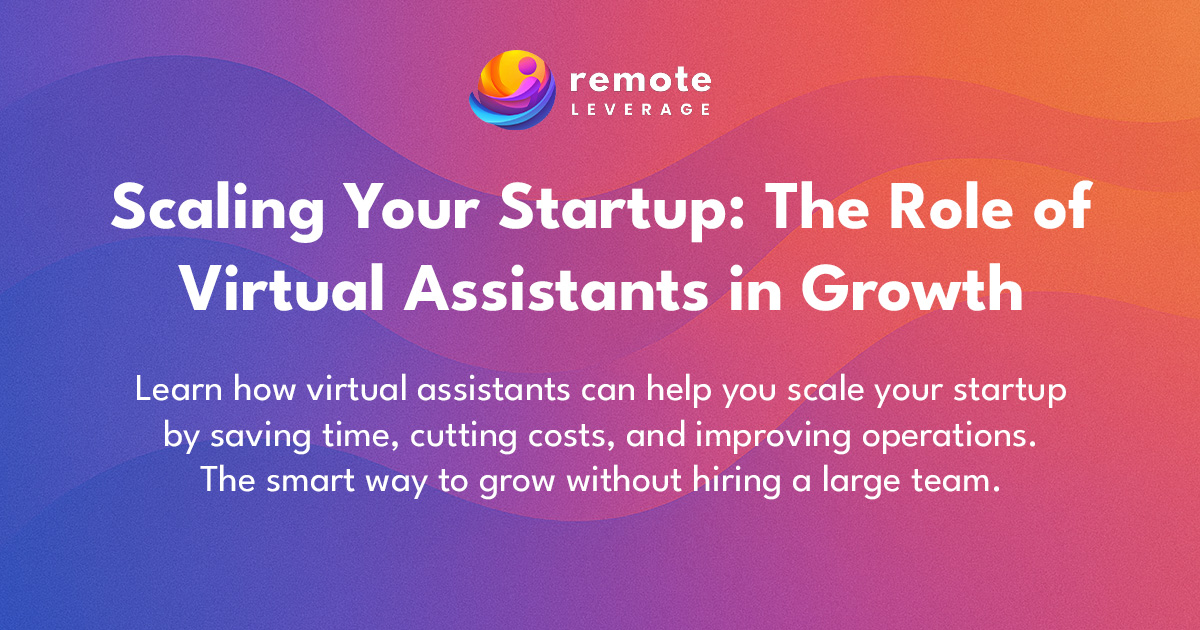
Startups are built on big ideas and small teams. In the early stages, every minute matters, and every dollar counts.
As a founder, you wear all the hats: sales, marketing, operations, customer support, admin, and more. But as your startup grows, trying to do it all quickly becomes unsustainable.
This is where virtual assistants (VAs) come in. They provide flexible, affordable support that allows your core team to focus on what matters most: growth.
In this article, we’ll explore how hiring a virtual assistant can be a key move in scaling your startup effectively.
Startup founders often spend hours each week handling admin, scheduling, and customer service.
These tasks are necessary, but they don’t directly drive growth.
Hiring a virtual assistant allows you to offload low-leverage activities like:
By removing these tasks from your plate, you can spend more time on sales, partnerships, fundraising, and product development.
Time saved equals more time to scale.
Building a large in-house team too early can drain resources and increase risk. Virtual assistants provide support without the overhead of full-time employees.
With a VA, you avoid:
This allows startups to stay lean while maintaining professional operations. You only pay for the hours you need, starting at 20 hours per week.
It’s the perfect solution for early-stage teams that need help but aren’t ready for full-time hires.
Speed is critical in a startup. But moving fast often means team members get overwhelmed. Delegating key operational and support tasks to a VA helps reduce bottlenecks and prevent burnout.
Virtual assistants can help with:
The result is a more efficient team that can move quickly without sacrificing quality or energy.
First impressions matter. If your startup is slow to respond or lacks polish in its communication, you could lose leads and customers.
Virtual assistants can support your customer experience by:
With a VA handling client communication, your startup looks more professional and responsive—without the need to hire a full customer service team.
Growth brings complexity. More leads, more customers, more projects. Without systems in place, things start to slip through the cracks.
Virtual assistants can help you stay organized by:
Organization is a competitive advantage. A VA helps maintain it while your startup scales.
Q: Is a virtual assistant right for an early-stage startup?
Not necessarily! Many of our clients start at 20 hours per week, which is our recommended minimum. It’s the perfect sweet spot to see meaningful results without overcommitting. You can always scale up from there.
Q: How many hours should I start with?
Most startups start with a minimum of 20 hours per week. This allows the VA to get familiar with your business and deliver consistent value.
Q: Will I have to train my VA?
With Remote Leverage, no. Our VAs are college-educated, English-fluent, and trained in the tools and workflows that startups use most.
Scaling a startup is exciting, but it can also be overwhelming. You don’t need to do it all yourself, and you don’t need a massive team to move fast.
Hiring a virtual assistant gives you:
Startups that embrace smart delegation scale faster—and with less stress.
At Remote Leverage, we match U.S.-based startups with pre-vetted virtual assistants who are trained, professional, and ready to help you grow.
✅ Start with 20 hours per week
✅ Match within 48 hours
✅ Pay only for what you need
✅ Work with college-educated, English-fluent VAs in your time zone
Let’s take some hats off your head—so you can focus on building the company of your dreams.